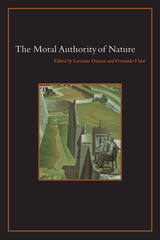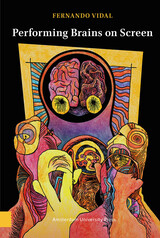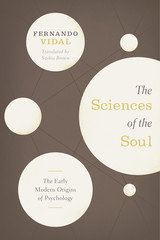
The Moral Authority of Nature offers a wide-ranging account of how people have used nature to think about what counts as good, beautiful, just, or valuable. The eighteen essays cover a diverse array of topics, including the connection of cosmic and human orders in ancient Greece, medieval notions of sexual disorder, early modern contexts for categorizing individuals and judging acts as "against nature," race and the origin of humans, ecological economics, and radical feminism. The essays also range widely in time and place, from archaic Greece to early twentieth-century China, medieval Europe to contemporary America.
Scholars from a wide variety of fields will welcome The Moral Authority of Nature, which provides the first sustained historical survey of its topic.
Contributors:
Danielle Allen, Joan Cadden, Lorraine Daston, Fa-ti Fan, Eckhardt Fuchs, Valentin Groebner, Abigail J. Lustig, Gregg Mitman, Michelle Murphy, Katharine Park, Matt Price, Robert N. Proctor, Helmut Puff, Robert J. Richards, Londa Schiebinger, Laura Slatkin, Julia Adeney Thomas, Fernando Vidal


The great Swiss psychologist and theorist Jean Piaget (1896–1980) had much to say about the developing mind. He also had plenty to say about his own development, much of it, as Fernando Vidal shows, plainly inaccurate. In the first truly historical biography of Piaget, Vidal tells the story of the psychologist’s intellectual and personal development up to 1918. By exploring the philosophical, religious, political, and social influences on the psychologist’s early life, Vidal alters our basic assumptions about the origins of Piaget’s thinking and his later psychology.
The resulting profile is strikingly dissimilar to Piaget’s own retrospective version. In Piaget’s own account, as an adolescent he was a precocious scientist dedicated to questions of epistemology. Here we find him also—and increasingly—concerned with the foundations of religious faith and knowledge, immersed in social and political matters, and actively involved in Christian and socialist groups. Far from being devoted solely to the classification of mollusks, the young Piaget was a vocal champion of Henri Bergson’s philosophy of creative evolution, an interest that figured much more prominently in his later thinking than did his early work in natural history. We see him during World War I chastising conservatism and nationalism, espousing equality and women’s rights, and advocating the role of youth in the birth of a new Christianity.
In his detailed account of Jean Piaget’s childhood and adolescence—enriched by the intellectual and cultural landscape of turn-of-the-century Neuchâtel—Vidal reveals a little-known Piaget, a youth whose struggle to reconcile science and faith adds a new dimension to our understanding of the great psychologist’s life, thought, and work.

Fernando Vidal’s trailblazing text on the origins of psychology traces the development of the discipline from its appearance in the late sixteenth century to its redefinition at the end of the seventeenth and its emergence as an institutionalized field in the eighteenth. Originally published in 2011, The Sciences of the Soul continues to be of wide importance in the history and philosophy of psychology, the history of the human sciences more generally, and in the social and intellectual history of eighteenth-century Europe.
READERS
Browse our collection.
PUBLISHERS
See BiblioVault's publisher services.
STUDENT SERVICES
Files for college accessibility offices.
UChicago Accessibility Resources
home | accessibility | search | about | contact us
BiblioVault ® 2001 - 2024
The University of Chicago Press









